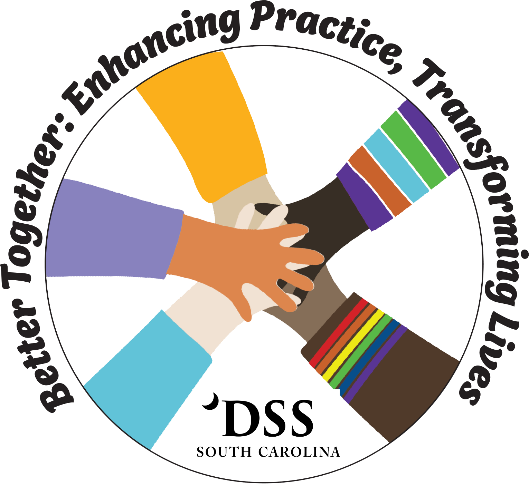DAODAS and DSS Recognize September as Fetal Alcohol Spectrum Disorders Month
FOR IMMEDIATE RELEASE
DSS Contact: Tiffiney Paschal
803-898-7364
Tiffiney.Paschal@dss.sc.gov
DAODAS Contact: Jimmy Mount
803-896-5562
jmount@daodas.sc.gov
DAODAS and DSS Recognize September as Fetal Alcohol Spectrum Disorders Month
September 6, 2023 - Governor Henry McMaster has proclaimed September as Fetal Alcohol Spectrum Disorders (FASDs) Awareness Month, which recognizes the dangers of alcohol use during pregnancy and the challenges individuals and families can face who are living with FASDs.
According to the Centers for Disease Control and Prevention (CDC), FASDs are a group of irreversible conditions that can occur in a person who was exposed to alcohol before birth, with Fetal Alcohol Syndrome (FAS) being the most recognizable disorder due to distinctive facial features, cognitive problems, and impaired growth.
“DAODAS and DSS are united in partnership to bring awareness to FASDs through our joint Don’t Risk It campaign and educate the public that this condition is 100% preventable. As we recognize FASD Awareness Month, it’s important to shed light about the potential harm that alcohol consumption during pregnancy can cause to unborn babies,” said DSS State Director Michael Leach. “But it’s also important to show support for those affected by this preventable condition.”
“Tragically, there are still too many myths and misconceptions around drinking during pregnancy, such as ‘It’s okay to drink a little during the third trimester’ and ‘FASDs only occur in children of mothers who are heavy drinkers,’ ” said DAODAS Director Sara Goldsby. “Consumption of any amount of alcohol – at any point during a pregnancy – can affect the baby, and it is important for healthcare providers, family and friends to share this information with expectant mothers.”
Signs of FASDs can include:
- Hyperactivity
- Lack of concentration
- Abnormal physical features such as small head size, low body weight, and underdeveloped facial features
- Hearing and vision problems
- Intellectual and behavioral disabilities
- Difficulty with reasoning and judgment
- Problems with the kidneys, bones, brain, or heart
According to the CDC, FASDs are preventable by abstaining from all alcohol use during pregnancy or when trying to get pregnant. There is no safe amount or right time to consume alcohol during pregnancy, and all types of alcohol, including wine, can cause harm to the unborn fetus.
To raise more awareness about the effects of FASDs, the South Carolina Department of Alcohol and Other Abuse Services (DAODAS) and the South Carolina Department of Social Services (SC DSS) teamed up in 2022 to launch the "Don't Risk It" campaign. This campaign aims to educate and provide resources to pregnant women, families, medical providers, and organizations about the dangers of prenatal alcohol consumption and the permanent effects it can cause in the form of FASDs.
To learn more about the campaign, and to find resources about FASDs, visit www.DontRiskItSC.com.
###

